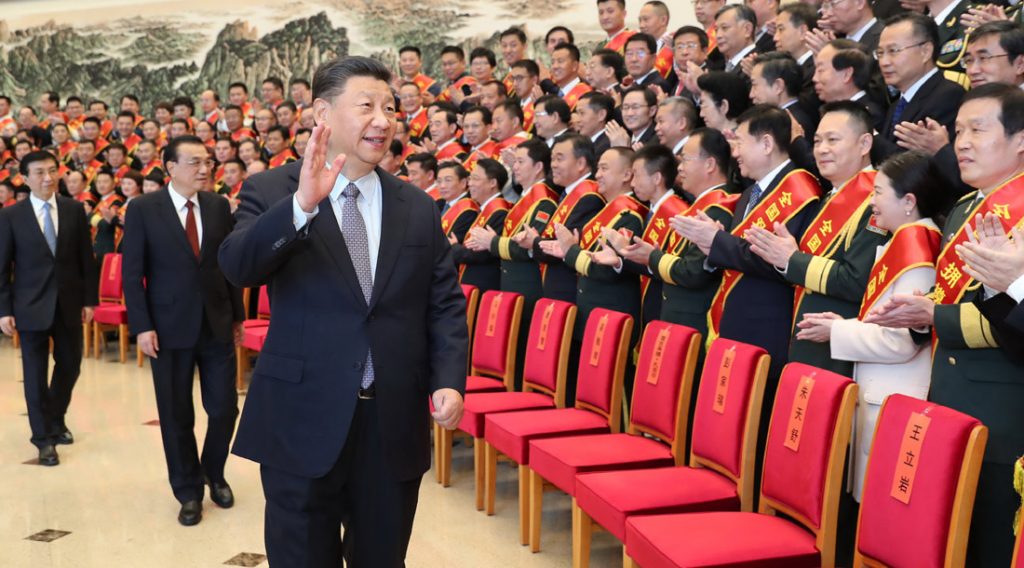‘Common prosperity’: the ‘egalitarian’ doctrine that advances in China and impacts the world

Advocating for a less unequal society with smaller disparities between rich and poor is not a new idea in China, but it has gained traction in the rhetoric of Chinese authorities – in a search for a “common prosperity” that, while focusing on the local population, it has the potential to have huge repercussions in the rest of the world.
China says its policies to reduce inequality are exactly what the country needs right now, and “common prosperity” has become one of the main banners championed by President Xi Jinping in recent months.
His critics, however, warn of another aspect. According to them, the measures lead to even greater control by the state over how the private sector and society will be governed.
One of the most visible consequences of the common prosperity doctrine has been a new focus on the Chinese private sector, with its priorities being directed towards the domestic market.
Technology giant Alibaba, whose global market has grown in recent years, has pledged $15.5 billion to promote common prosperity initiatives in China – and has established a dedicated team, led by the company’s chief executive. , Daniel Zhang.
The company says it has benefited from the country’s economic progress and that “if society is doing well, and the economy is doing well, then Alibaba will be fine.” Its competitor Tencent, another tech giant, is also getting into this area. He pledged $7.75 billion for the cause.
The Chinese corporate world is willing to show that it is contributing to the Communist Party’s mandate in this effort – but when the move for more companies to publicly support leader Xi Jinping’s new vision began, it came as a “some shock,” he said privately.
to the BBC a top executive of a Chinese company. “But then we got used to the idea. It’s not about robbing the rich. It’s about restructuring society and building the middle class. And, deep down, we’re a consumer business, so that’s good for us .”
Luxury sector can lose
The origin of this income disparity goes back to reforms made some 40 years ago, which opened up the Chinese market economy and allowed the accumulation of vast personal fortunes, reports the agency Reuters.
As hundreds of billionaires emerged in the country, inequality between rural and urban China grew. If common prosperity means a greater focus on the emerging Chinese middle class, it could mean rapid advancement for global companies serving these consumers.
“We can see that the focus on young people getting jobs is good,” Joerg Wuttke, president of the European Union Chamber of Commerce in China, told the BBC. “If they feel they are part of the social mobility in this country, something that has been weakening, then it’s good for us. Because when the middle class grows, there’s more opportunity.”
However, businesses linked to the luxury sector may not do so well, warns Wuttke.
“Chinese spending accounts for about 50% of luxury consumption in the world – and if China decides to buy fewer Swiss watches, Italian ties and European luxury cars, this industry will take a hit.” However, while Wuttke recognizes that China’s economy needs critical reforms to raise the Chinese average wage, he says common prosperity may not be the most efficient way to achieve that goal.
Steven Lynch of the British Chamber of Commerce in China also says that common prosperity is no guarantee that the middle class will grow the way it has over the past 40 years. He likes to tell a story about how quickly the Chinese economy has expanded over the past few decades.
“Thirty years ago, a Chinese family was able to eat a jar of dumplings once a month,” he says. “Twenty years ago, maybe they could have a pot once a week. Ten years ago, that changed to a pot a day. Now they can buy a car.” So far, though, Lynch says the idea of common prosperity hasn’t resulted in anything concrete beyond the kind of corporate social responsibility programs Alibaba and Tencent have adopted.
“There are also a lot of instant regulations popping up in various sectors,” he said of recent lawsuits against technology companies. “It causes uncertainty – and raises questions. If they’re going more inward, then do they really need the rest of the world?”
The ‘new socialism’
At its core, common prosperity is about making Chinese society more egalitarian, at least according to the Communist Party. And this has the potential to transform the meaning of socialism in the global context.
“The Party is now concerned about the average workers – such as taxi drivers, migrant workers and boys who do delivery services,” says Wan Huiyao of the Beijing Center for China and Globalization.
“China wants to avoid the polarized society that some Western countries have, which we’ve seen lead to deglobalization and nationalization.”
But long-time China observers say that if what the Party really wants is to transform socialism – with Chinese characteristics – to be an alternative model for the rest of the world, then common prosperity is not the way.
“This is part of the shift to the left and part of the shift toward more and more control that has been indicative of the Xi Jinping government,” says George Magnus, an associate scholar at Oxford University’s Center for China.
Magnus adds that common prosperity does not mean reproducing a European style of social welfare. “The implicit pressure is to fulfill the Party’s objectives,” he says. “There will be high and ‘unreasonable’ income tax and pressure on private companies to make donations for the Party’s economic goals,” he says, “but no big steps in the direction of progressive taxation.”
Indeed, according to Reuters, Chinese officials have said that “common prosperity” is not aimed at “eliminating the rich” or “supporting the lazy”: the idea is that “those who got rich first” help those who are furthest behind, he said.
in August Han Wenxiu, from the country’s central economic and finance commission. In practice, state control over monopoly sectors and against tax evasion has also increased.
Chinese Utopia, top to bottom It is clear that common prosperity is an important part of how the Chinese state and society will be governed under Xi Jinping. With that comes the promise of a more egalitarian society – a bigger and richer middle class, and companies that give back to society rather than just taking profits for themselves.
It is a kind of top-down, Utopian China that the Party hopes will prove a viable model for the world, as an alternative to what the West has to offer.
But he comes with one thing: even more control and power in the hands of the Party. China has always been a difficult environment for foreign businesses to operate, and common prosperity means that the world’s second-largest economy has become even more difficult to navigate. *With reporting by Karishma Vaswani, BBC News in Asia




